Audiobooks New Zealand
Menu
Sound Salad
|
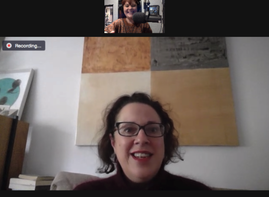
For our 7th installment I got to share the mic with a woman I admire hugely, she’s a powerhouse of productivity, and she’s always got time for sending the elevator down to help other writers at all levels of their creative journeys. She is many things; public speaker, workshop facilitator, she happens to be the genius behind the Writing Room, and is primarily a screenwriter. Her credits include Fresh Eggs, The Tender Trap, Under the Vines, My Life is Murder and the Cul de Sac - to name a few.
She always wrote as a child, and went to journalism school to pursue it professionally. Figuring out pretty quickly that she preferred creative writing to current affairs, she ended up in television as a way of making a living as a writer in our wee country. She also writes short stories and theatre - the first play she wrote was based on an argument she had with Nick Ward about the fact that they had no writing work coming their way - and is a board member for The Writer’s Guild. She began the Writing Room; a monthly session where writers from all different styles and backgrounds can come together to simply write in the presence of other writers. When she began there was nothing like this, no standard cafe or environment where all writers went to get the satisfaction and motivation from tapping keyboards. Kathryn genuinely cares about the way writers and the arts are perceived here, which is why she doesn’t mind doing behind the scenes work in advocacy with the Guild, being our lobbying voice for funding and conversations with government. The Guild also provides professional, legal and contract advice to writers. Kathryn has had oodles of experience in entertainment, and speaks about the collaborative nature of the television and theatre industries, versus the often isolating role of novelist or memoirist. There are a lot of boxes to tick and processes to fulfil when you’re working in a large team to tell a story, but she firmly believes that the art phase, or the very early stages of developing an idea and draft, is all you - no matter what medium you’re working in. From there, theatre peeps do live, often staged readings to develop their scripts. In TV someone is always going to have to sign drafts off, give notes etc, but you know it’s finished when you feel you’ve done your absolute best - and you wouldn’t be embarrassed to show it to anyone. At the time of our interview, she was tackling a few tweaks on her play ‘The Campervan’ which was, at that point, set for its debut at the Pumphouse Theatre with Tadpole Productions. Alas, the dreaded Rona has turned up again to foil those plans, but the show will go on! Eventually. (Links to ticketing info below.) She is continuing to develop a screenplay script that’s been a number of years in the making, and she has just completed a huuuge literary event called WriteFest, where she brought together multiple tutors for concentrated masterclasses and workshops for authors. Her advice for young or emerging writers is;
Sign up for her workshops: www.beginnersguidewritingworkshops.com Check out Kathryn’s website, where you can also sign up for the newsletter: https://www.kathryn-burnett.com/ Follow her on socials: Facebook @KathrynBurnett https://www.facebook.com/kathryn.burnett.77 Instagram @kathrynisawriter And for tickets and further info about when to expect ‘The Campervan’ https://pumphouse.co.nz/whats-on/show/the-campervan/ Sign Up Today at Audiobooks NZ and get your first Audiobook for free on a 14 day trial.
0 Comments
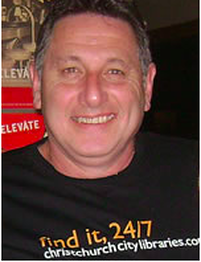
"We’ve got a lot yet to tell, and see, and watch and listen to in this country. There’s such a lot more to tell." Martin Crump is a writer, broadcaster and MC, and (among many other things) one of Barry’s Boys. His feature book, In Search of the Great Kiwi Yarn (2007), is a collection of thematically linked Kiwi stories that he claims he never even knew he could write, least of all deliver. But with his literary lineage it was a shoo-in, and there were plenty of other projects that followed. Martin has been instrumental in the publication of his father’s series for children, Professor Pingwit and the Pungapeople (2009), the origin of which was a white lie about some red shoes being stolen from a driveway. He's no stranger to speaking about his father; it really does seem impossible to discuss Marty’s literary career without making mention of the notorious Barry Crump. Indeed it seems that Barry’s way of developing stories from skerricks of real life, making magic out of the mundane, and flying away on imaginary tangents, was the exact formula to continue the legacy of publishing within the family. Whether it’s a duckling emerging from a hot water cupboard, or a trip to the zoo, Martin finds the unusual and exciting to bring life to, for adults and children. Self confessedly growing up in the ‘Communist Headquarters’ in New Lynn with his mother and brothers, he’s had educated and eccentric people around him his whole life, something that no doubt informs his prolific ability to keep writing and forging new pathways for the family’s archive of work. He’s well keen on audiobooks, having narrated most of his fathers’ titles for AudiobooksNZ - even though he can’t stand hearing his own voice. That may be the case, but the rest of the nation grew a strong affinity with him as a ‘voice in the night,’ as he provided a kind of kinship for those operating, working, or just being up in the wee small hours. The same audience his father seemed drawn to, with The Overnight People and The Bush Telegraph being publications to cater for people who were late nighters. Coupled with the dulcet timbre required of the host, it’s no surprise that Newstalk ZB placed him in the role, nor that he worked as a host for Radio Pacific and Radio Live as well. He believes it’s important to record and capture stories before they’re lost. His other advice for upcoming writers is;
We wish him all the best with the pipelined Puha Rd film, set to follow up the Wild Pork and Watercress cinema adaptation; ‘Hunt for the Wilderpeople’ directed by Taika Waititi. Crump is available to visit schools as part of the Writers in Schools Programme. For this, all other enquiries, and to stay up to date with the family, you can contact them via barrycrump.com. Sign Up Today at Audiobooks NZ and get your first Audiobook for free on a 14 day trial.
Pip McKay was so drawn to Croatia throughout her overseas experience in the 80s, it makes sense that it provides the setting for her first novel, The Telling Time.
She began writing at the Creative Hub 7 years ago, and 3 years ago completed her Masters in Creative Writing at the University of Auckland. She finished the book in this time and explored her own craft, and has since gone on to win numerous accolades for her efforts. She won the New Zealand Society of Authors Complete Manuscript Assessment Award, the 2020 First Pages Prize and had Paula Morris provide some wonderful book notes. Pip wanted to explore female relationships in depth, the rites of passage that pave our way to self realisation and growth - particularly when we’re outside of our comfort zones. Having the Covid Lockdown provide her with the time to devote to getting the book out there, she self published through Your Books in Wellington and has been an active participant in the latest Writers Festival circuit in New Zealand. As Pip’s life unfolded, she was exposed to more and more immigrant children and families, Yugoslavia being a particularly poignant place of intrigue. She discovered throughout her research and travels that a lot of women moved here in secret to lead different lives, that in fact there were many secrets and hidden depths to the civil unrest in Yugoslavia at the time the book is set. These untold traumas and events provide the backdrop for our protagonists to redefine what is really important, and highlight the lengths we got to to protect our daughters (and mothers) from learning the often harrowing truth about our life choices. Sebastian Faulks OBE was one of the judges of the First Pages Prize. He specifically likes to be transported to other places and worlds when he reads. If he felt the characters and story had somewhere to live on from - beyond those first few pages - I’m inclined to agree with him. There are numerous seeds of secrecy planted early on that drive you to unearth the plot towards their inevitable theme of finding home and belonging. And finding that you can in fact create closer bonds through being honest and allowing different generations to know your trauma, to learn from it through you, and from you. The Telling Time traces a very distinct time in New Zealand’s history where club culture and shared language defined who you socialised with, who you could and couldn’t talk to, who you married. Pip has two sons of her own, one of whom pushed her towards finalising publication of the novel, and she’s certain that sharing knowledge and experiences cross-generationally is what enriches their relationships. Pip is an advocate of self publication, and has a wealth of knowledge around the subject - mainly through learning things on the fly herself - and her work is a lovely inclusion in New Zealand’s literary archive now. With a potential sequel in the pipelines we’re all hanging out to see where her characters head to next, and the simple profundities of life that they learn along their travels in New Zealand, Yugoslavia and beyond. Anyone keen to find out more about Pip and her work can visit her website www.pjmckayauthor.com, follow her on Facebook at pjmckaynzauthor and Instagram @pj_mckay_author. Sign Up Today at Audiobooks NZ and get your first Audiobook for free on a 14 day trial. 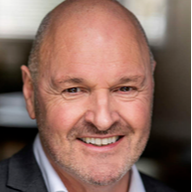
Our first narrator interview is with an amazing New Zealand actor, musical director, and vocal mimic; the artistically and musically adroit Paul Barrett. His school reports said Paul ‘must stop showing off in class and attracting the attention of others.’ But his instinct wasn’t to be disruptive, it was to think about how he could engage an audience.
He was gifted with a brilliant ability to convey sounds, accents and music from an early age, understanding intonation and inflection from his own youthful instinct at 4 years old. He attributes his 64 year old voice to whatever he picked up in England as a toddler, coupled with the fact that he was blessed with an incredible set of ears. He was gifted The Complete Works of Oscar Wilde by his mother as a teenager (narrated by the great Bing Crosby, of course) and it seems the rest is history when it comes to the expansive knowledge and experience of all things audible that Paul has accumulated over his career. Paul has made a huge impact in the realm of Radio Drama in this country, working with the best of the best of actors - who were all employed lucratively back in the 80s (bless you RNZ) - so he could use the time and experience to hone his craft. Paul says he reads what he’s told to, but he’s lucky enough to narrate some key Aotearoa titles, from Hea Kai to Rock College, a History of Mt Eden Prison. Paul didn’t go to a formal drama school, but he’s been a consummate repertory performer in well over 80 productions in his extensive career, while managing to master the piano privately and study Music History and Music Composition under some of the greatest teachers our university’s have had the privilege to employ. Paul loves the role of the narrator in bringing a story to life for an auditory audience. His performance background seems to have always led him back to the pursuit of the voice, and all things vocal. He’s one of a small handful of people who won Best Narrator awards when (then) Blind Foundation, (now) BLVNZ were still dishing out the coveted trophy, won by the likes of Merv Smith and Wendy Karstens. With international books, like Wilbur Smith level massive selling swashbuckler-y literature, Paul is often developing over 80-90 different voices and accents, to maintain the authenticity of the world he’s creating with the engineer. For real. He may think his voice isn’t ‘in vogue’ anymore, but by crikey I learn a lot from this man. And hey, if anyone gets the chance to do Dylan Thomas’s 1954 radio drama ‘Under Milkwood’ for any broadcast audience - TWICE NO LESS - they’re pretty incredible to me. Sign Up Today at Audiobooks NZ and get your first Audiobook for free on a 14 day trial. 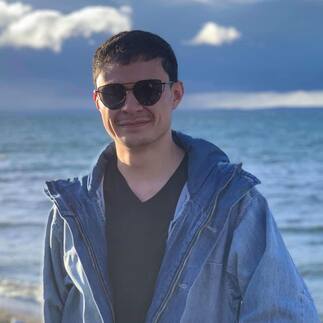
‘We turn pages, they press buttons.’
The role Josh Nathan assumes is to make it that simple. Josh figured out at university that audio engineering was what he was going to focus his energies on, and has been a keen listener of all manner of recordings since. Beginning with the ‘sound side’ of music, (not surprising given his influential Uncle happened to be the drummer of iconic Kiwi reggae band ‘Herbs,’) he was looking to extend his engineering portfolio, when he saw that BLVNZ (Blind + Low Vision NZ) were advertising for a role. Josh is a Post-Production Audio Technician - or, simply put, he’s the one who cleans up the audiobooks that have problems in them, throughout the process of digitisation. If everything goes smoothly on the coding end for these conversions, the Digital Accessible Information System (DAISY) that the members use should be formatted to replicate what the visual reading eye would see. He digitises everything from reel to reel machines, splicing through the old tapes in our archives to bring the narrators of the 70s-90s back to life, and make some of those classic titles accessible to members again. He listens to every book he digitises (exact number unknown, but most likely in the several hundreds realm) making sure to go through and edit overlooked mistakes the engineers of those bygone eras were technologically unable to. When asked what a favourite listen has been, he cites The New Zealand Baking Book, because of the colloquialisms and the difference in language and techniques used over the generations. He’s also another fantasy novel fan, enjoying the plot lines and character growth in big and bizarre worlds. Josh hails from the staunchly proud Ngaati Porou iwi. His plan or hope for his own audio engineering journey, is to build immersive experiences about the stories of settlers and migrants told in te reo Maori - with English subtitles. He’d like to aurally recreate the indigenous migration journey from Hawaiki to NZ in a virtual reality setting. The ‘back in the day’ voyage on the waka, with options to follow the Southern Cross, Northern Lights or other sky dwelling guides to see how that journey could possibly have been - and allow others into the experience of that journey as well. Let’s just say the guy’s a smart cookie. Who also casually dropped the Lit RPG bomb on me.. or literature that’s based on games and narrated or performed by the pros in that field. Soundbooth theatre - most definitely something I need to investigate further.. 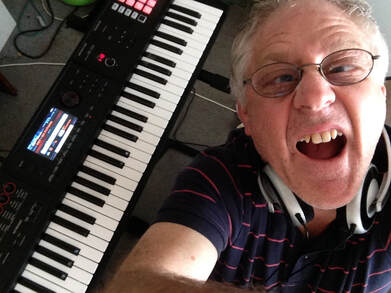
Michiel first started working at the (then) Blind Foundation in 1976 at the age of 16, doing tape to tape transfers for the National Library as they adapted to a two-track system for print disabled people, (people who had difficulty holding books or reading them.) He desperately wanted to work in the library and fought out 3 other applicants to do so. He’s been in various spaces in the library since, and currently works in Accessible Format Services for (now) Blind + Low Vision NZ as a scanner operator, getting digital copies of books through to engineers. Now aged 60, he’s been working in and around the creation of audio content his entire professional life. We were supposed to be discussing the debate; does listening to an audiobook count as much as reading one? Purists will say that you’re not getting the full experience of the book without having read it yourself, every gruelling page with every grammatical reference. I don’t know how that can stand up as a fact, given the complexity of learning difficulties and often sheer lack of time these days for people to really engage in a story - not to mention the accessibility factor - it would mean that any book you’d been read, or had heard, wasn’t ‘counted.’ Hence why I thought to bring in Michiel, to see what someone who had been living and breathing the medium had to say about that. What transpired was more of a gas bag about his life by way of favourite titles, styles, flavours and the desired effects of stories. He boarded at Homai College from 1965 (now called BLENNZ) and first heard talking books through his blind friends on their talking book machines. Ironically, the students there didn’t get their education via audiobook, they were listened to purely for entertainment. Born with cataracts but still partially sighted, Michiel wanted to make sure he used his ability to physically read as much as possible (because he could!) He recalls listening to lots of CS Lewis, Narnia and The Last Battle on vinyl. The days, aye? Back then they got a lot of British and American narrations and titles, still we both agree there’s nothing quite like hearing a Kiwi story in a Kiwi voice. If the narrators back then made it seem like a chore, I’m sure there would have been plenty of Kiwi actors chomping at the bit to have a go at the job...just sayin. Michiel speaks about his reasons for enjoying audio storytelling, how there’s a particular nuance about a real person that engages your imagination. His favourite collections are always sci-fi’s or medieval fantasies - the classics from the 50s through to more contemporary. He loves worlds where the physics are different in a way no one needs to explain, just as much as he likes musician’s autobiographies and memoirs. Michiel is a music, performance, story, actor and magic lover, with a penchant for escapism through the pages and sounds of literature. He’s also a great talker and always keen for a convo, and while we could have spent all the time in the world hearing about his past, there are a few key reasons we unearthed in favour of audiobook consumption, which I had to bring in - because of our topic.
These came from a study of the opinions of several groups of new audiobook listeners. If these are their main reasons for opting for an aural version of a book, I’m pretty sold too. Sign Up Today at Audiobooks NZ and get your first Audiobook for free on a 14 day trial. 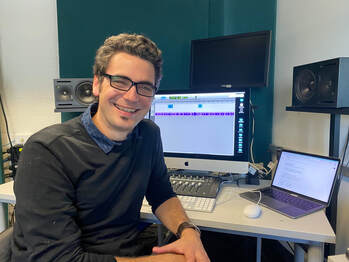
Episode 1 - Sound Salad Begins with guest CEO Audiobooks NZ Theo Gibson Welcome to Sound Salad, the interview podcast for all things spoken and all things heard. I’m Romy, nice to have you with us. Sound Salad is the brain-child of Theo Gibson, (founder and creator of Audiobooks NZ) and myself, Romy Hooper (actor, audiobook narrator, writer, fellow bibliophile) essentially because we thought it was about time that there was a decent, local podcast about audiobooks. One that didn’t centre around reviews, or that were simply audiobooks released in podcast format. While we may cover some of that stuff, we’re keener to be a bit niche and chat with those who work in the creation of audiobooks. The voices, the authors, the publishers, the engineers, the editors, readers and appreciators of the spoken word who all have the same thing in common - they’re lovers of aural storytelling. For our first episode, I take Theo on a little stroll down memory lane as we cover the history of recorded sound, the inventors and organisations that decided this was such a vital tool for technological progress, as well as accessibility. I’ve dug up some of the first ever audiobook recordings, the theatre companies who thrust their actors in front of a microphone before a camera was the preferred option, the engineers who took us from cylinders and gramophones to CD’s and apps. When the Blind and Low Vision, Dyslexic and Returned Services communities who needed a cinematic lifeline to fully savour the enjoyment of a book were finally catered for, the popularity of hearing stories grew. They have continued to do so exponentially since the radio drama days, now with multi-cast narrations of our most classic literary editions available at the flick of a thumb on a screen. Where to from here? We’ll keep tracking to find out, and toss it all up with you as often as we can. Happy hearing! Sign Up Today at Audiobooks NZ and get your first Audiobook for free on a 14 day trial. |
Romy HooperRomy Hooper, Audiobook Narrator, Actor, Writer and Podcast Host Archives
November 2023
Categories |
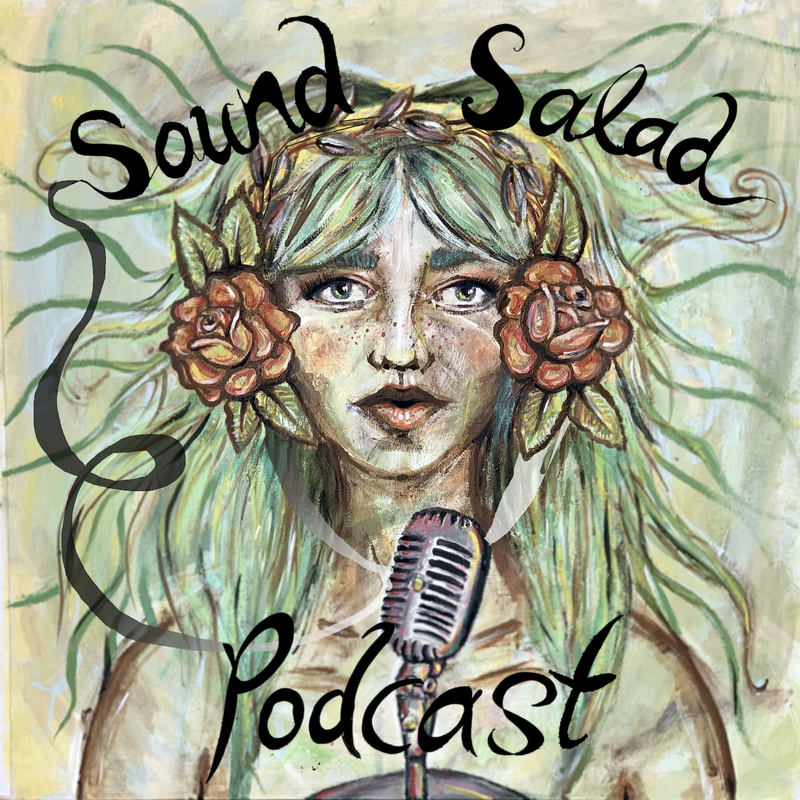
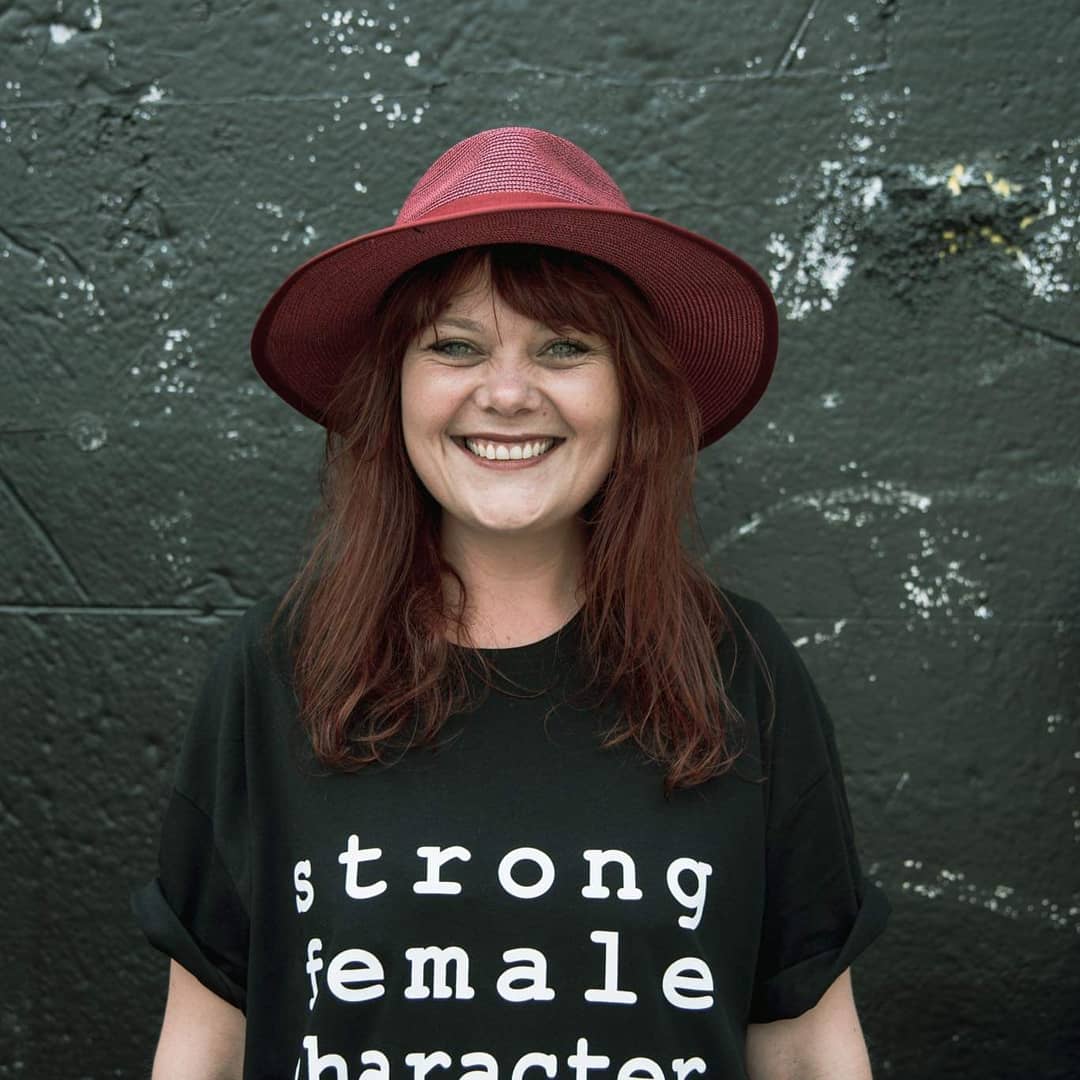
 RSS Feed
RSS Feed